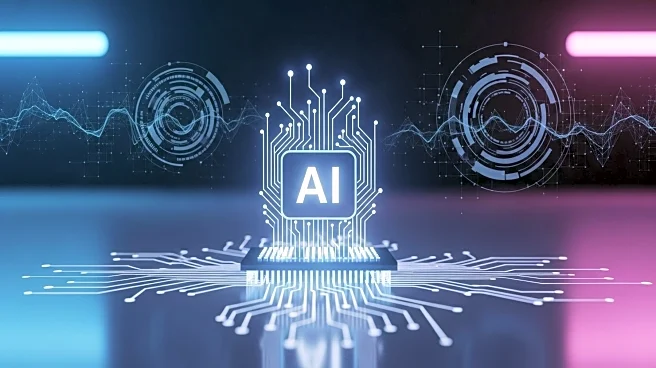What's Happening?
Billionaire investor Steve Eisman, known for predicting the 2008 housing collapse, has raised concerns about the U.S. economy's reliance on artificial intelligence (AI) for growth. Eisman suggests that without AI-related expenditures, the U.S. economy would show minimal growth, highlighting a 'tale of two cities' scenario. The U.S. GDP in 2024 was $29.18 trillion, with a projected growth of 1.8% in 2025, equating to approximately $530 billion. Eisman calculates that AI infrastructure spending by major companies like Google, Amazon, and Microsoft accounts for about $400 billion of this growth. This indicates that without AI, the economy's growth would be significantly less. Additionally, concerns are mounting over consumer debt, with household debt increasing by $185 billion to $18.39 trillion in the second quarter of 2025, according to a New York Federal Reserve Bank report. Auto loan balances and student loan balances have also seen significant increases.
Why It's Important?
Eisman's analysis underscores the critical role AI plays in sustaining U.S. economic growth, suggesting that without it, the economy would face stagnation. This reliance on AI highlights potential vulnerabilities, as the technology's transformative impact remains uncertain. The growing consumer debt further complicates the economic outlook, with increased household, auto, and student loan balances indicating financial strain on consumers. This situation could lead to broader economic challenges, affecting sectors like retail and automotive, as consumers struggle to manage debt. The auto sector, in particular, faces issues with inflated car prices and increased loan loss provisions, signaling potential trouble for both consumers and lenders.
What's Next?
The U.S. economy may face challenges if AI investments do not yield expected returns, potentially leading to a reassessment of growth strategies. Stakeholders, including policymakers and business leaders, may need to address the underlying consumer debt issues to prevent further economic strain. The auto sector could see shifts in pricing strategies and inventory management as dealers and manufacturers respond to changing consumer demand and financial realities. Monitoring AI's impact on economic growth and addressing consumer debt will be crucial for maintaining economic stability.
Beyond the Headlines
The reliance on AI for economic growth raises ethical and strategic questions about the sustainability of such a model. As AI investments continue to grow, the potential for an AI bubble looms, with implications for job growth and inflation. The consumer debt situation highlights broader societal issues, including financial literacy and access to affordable credit. These factors could influence long-term economic policies and consumer protection measures.









